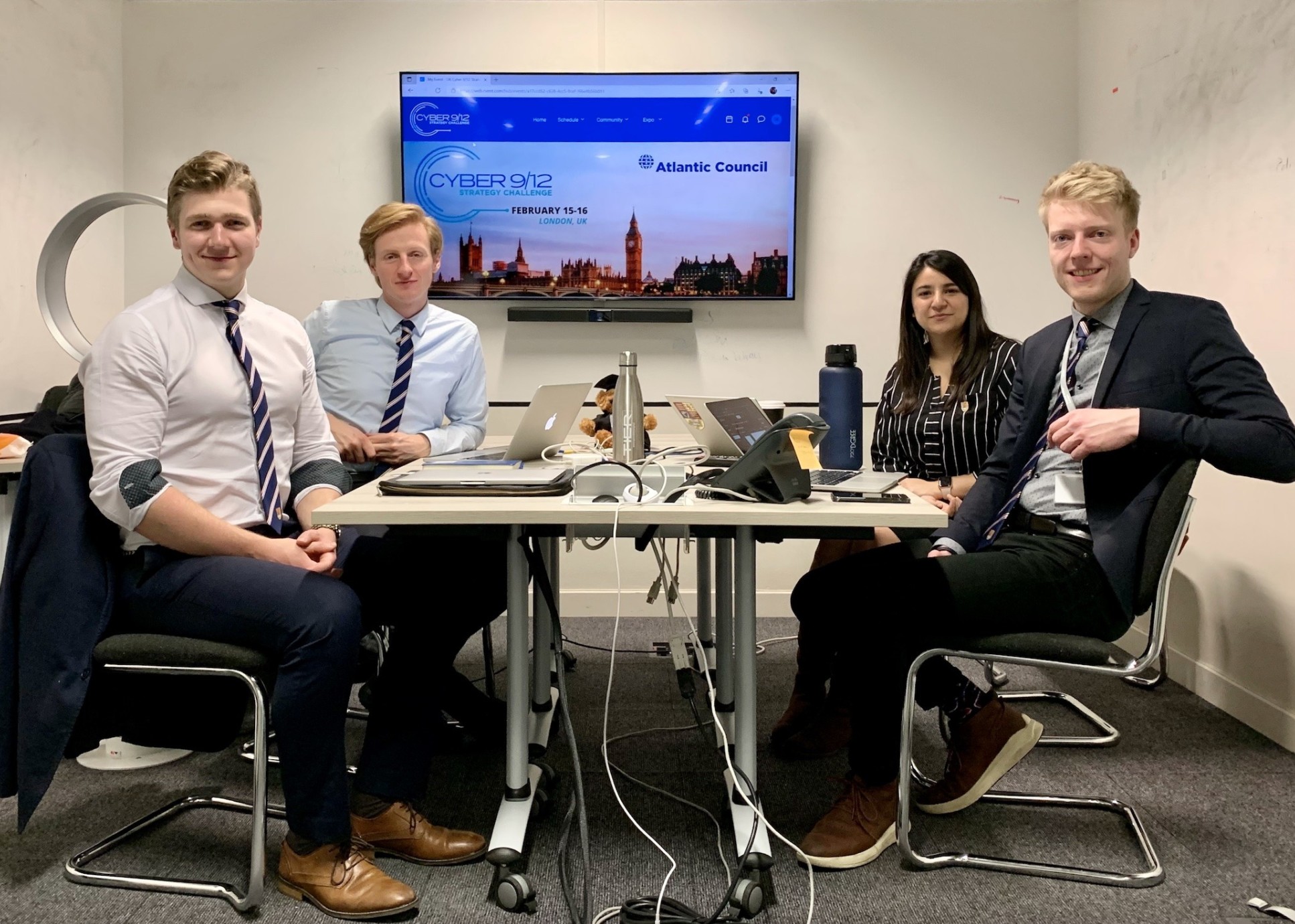Cyber 9/12: Inspiring the next generation of cyber security leaders
by Jack Cooper

Security and Resilience MSc students reach the semi-finals of cyber security crisis management exercise, the Cyber 9/12 Strategy Challenge.
When the Cyber 9/12 Strategy challenge was founded by the Atlantic Council in 2011, it was hoped the competition would inspire the next generation of cyber security leaders by offering a compelling, realistic scenario that would test students’ understanding of technology, policy, strategy, law, and international relations.
Competitors would gain invaluable insight into the state of cyber security: current cyber security threats are too complex to be solved by technology alone and must be tackled through a multi-disciplinary approach.
Atlantic Council’s vision was realised for Task Force SW7, a team of four Imperial students undertaking the Security and Resilience Master’s course at the Institute for Security Science and Technology (ISST), who succeeded in reaching the semi-finals of the national competition.
 Clockwise from top right: Sonakshi Kashkari, Vincent Bardenheier, Jack Powell, Dag Birkeland.
Clockwise from top right: Sonakshi Kashkari, Vincent Bardenheier, Jack Powell, Dag Birkeland.
The team were tasked with responding to the threat of a series of cyberattacks from radical climate change activists, affecting UK critical national infrastructure such as airports, coal mines, and train stations.
“4 weeks before the competition, we were given an intelligence pack and tasked with creating a situation assessment, decision document, and an oral presentation that we would present [to a panel of judges]… outlining our policy recommendations and rationale. It was the same again for the semi-finals, though with about 14 hours overnight in which to work, as opposed to 4 weeks.” - Jack Powell
Preparation for the competition was intense, but the team received crucial mentorship from the ISST’s Security Science Fellow Dr William G Proud.
“Aside from familiarising ourselves with the scenario and all the intelligence we had been given, we trawled through various seemingly-endless government documents, including the National Cyber Strategy, the NCSC 2021 review, and the integrated review 2021, to give us a flavour of what governments are prioritising in their cyber strategies. We had weekly team meetings in which we’d discuss the scenario and get feedback from Bill on what he thought of our current state of play. He would typically try to red-team our policy response, bringing up tough questions he thought we’d be asked, so that we could prepare answers and be ready for anything.” - Jack Powell
After a series of live briefing sessions in which Task Force SW7 presented their findings to a panel of judges, they were provided with additional tasks that challenged their initial assumptions about the cyber security threat, testing their critical analysis skills and decision-making.
“The aim of this competition was not only to initiate a dialogue regarding the potential cyber threats against UK’s infrastructure and safety of the public but also to prepare the next generation of cyber leaders for these kinds of scenarios and provide us with a direction for making the right decisions. This challenge has also helped us get comfortable with this on-the-spot kind of thinking and translating our thoughts into formal oral briefings.” - Sonakshi Kashkari
Task Force SW7 managed to reach the semi-finals despite stiff competition, learning a lot in the process.
“How much you get out of this experience is tied to how much you put in, it’s a great opportunity learn from your peers and other cyber security professionals. Of course, we were disappointed not to win, but I feel that we’d now be very well equipped if we were going to have another crack at this next year.” - Jack Powell
“Most importantly, we had a lot of fun!” - Sonakshi Kashkari
Article text (excluding photos or graphics) © Imperial College London.
Photos and graphics subject to third party copyright used with permission or © Imperial College London.
Reporter
Jack Cooper
College Headquarters